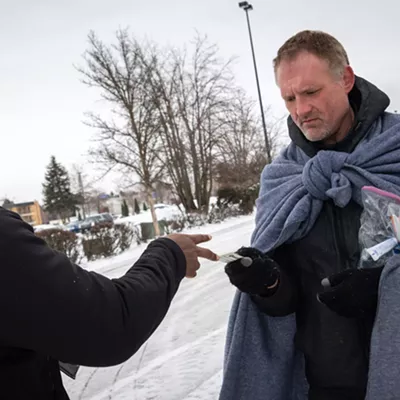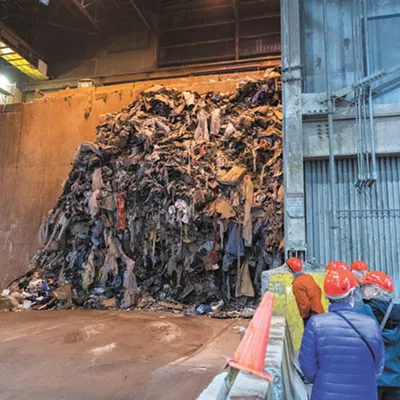The city of Spokane Valley cut its departmental budgets by 3 percent, eliminating the equivalent of nearly 10 full-time positions in doing so. For any city weathering the recession, that’s not unusual.
What’s stranger is that Spokane Valley has a full $24 million in extra money sitting around in its general fund, accumulated over the past six years. The Valley budgets so conservatively that it has ended every year with a surplus to add to its overall reserves. In 2008, net revenues came in at almost $8 million more than projected. Despite the recession, in 2009, the Valley added nearly $3 million to its coffers.
“We’ve tried to underestimate our revenue,” Spokane Valley City Manager Mike Jackson says. “And we actually maximize our forecast for expenditures. … We plan for the worst, and hope for the best.”
The Spokane Valley City Council has a goal of keeping carryover reserves at a minimum of 15 percent of its total general fund budget. Given the Valley’s current $36 million budget, that works out to a planned $5.4 million reserve. Instead, Spokane Valley now has a $24.4 million reserve.
The city of Spokane used to be just as fiscally conservative, purposefully predicting the fiscal situation to be worse than it actually would be.
But Spokane knew its predictions were lowballs, so it started spending more and cutting less. In every year of Spokane’s history, it budgeted for more expenses than revenue — until 2005.
Up until then, that practice worked, thanks to deeply pessimistic budget projections. Each year — surprise, surprise — revenues were higher and costs were lower than projected.
“The whole budget process becomes an exercise in sandbagging,” says Gavin Cooley, the city’s chief financial officer. “[That] started spinning out of control.”
In 2004, it all went wrong. For once, the city’s worst-case scenario turned out to be accurate. The city had to pass a supplemental budget just to make ends meet.
After that, Spokane changed its budget rules:
No using carryover money to cover ongoing expenses. As a result, the city changed from using pessimistic projections to using projects intended to be as accurate as possible.
“Suddenly, we realized that you can’t be so conservative anymore or you’ll end up with a bunch of extra money,” Cooley says.
Spokane Valley is a prime example: They budget conservatively. They end up with extra money.
“We’re just engaged in reality,” Cooley says.
“When you move from boom to bust to boom to bust, what businesses want is predictability.”
Walking through the fourth floor of City Hall, Cooley mentions offhandedly that he thinks a few of the unions are ready to make concessions to balance the budget. He says, however, that if he had acted in previous years as if the “sky was falling” and the sky didn’t — well, then union concessions would have been a tougher sell. They wouldn’t be willing to forego raises unless they believed the budget crisis was as bad as Cooley says.
“Having a more accurate budget builds trust,” Cooley says. “Trust is pretty darn key in a lot of city operations.”
But, in Spokane Valley, Jackson says that projections haven’t played a part in union negotiations. Since 2004, the Valley has always produced a balanced budget without dipping into carryover from previous years. But that may change this year.
Next year, the Valley may, for the first time, spend around $500,000 of its carryover reserves. The year after that, it may use an additional $2.6 million. By 2015, the current $24.4 million in carryover funds is projected (pessimistically, of course) to drain down to $10.6 million.
Some council members, like Brenda Grassel, are still squeamish about using carryover funds to balance the budget.
“What I don’t want to see happen is: We continue to use our $24 million in carryover money, just to meet our budget cost,” Grassel says. “Instead, we should not spend more than we take in.”
Grassel says she would need to see a lot more spending cuts before she votes for a budget that begins dipping deeper into Valley reserves.
But what about for people on the other side of the spectrum — those wondering why the city is experiencing cutbacks when it has so much extra cash? What about the people who would fault Spokane Valley for budgeting pessimistically?
“We don’t know what the future will bring,” Jackson says. “We can’t wait two or three years and then have to make drastic cuts if the economy doesn’t improve.”


























